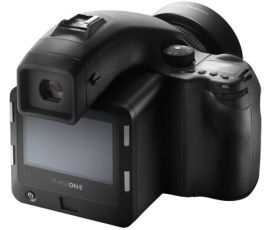As usual with Phase One sensors, we were particularly impressed by its color depth: a portrait score of 26.5 — also the best color depth ever measured on DxOMark.
In term of dynamic range, the IQ180 also reaches the very high score 13.6 Evs, but still doesn’t beat the best APS-C sensors, such as the Pentax K5 (14.1 Evs) or the Nikon D7000 (13.9 Evs).
Thanks to its specific “Sensor Plus” mode, the IQ 180 does pretty well under low-light conditions with an ISO score of 966, but it remains far from the best cameras, such as the Nikon D3s (low-light ISO score of 3253).
As the IQ180 will mainly be used in studios with full control of lighting conditions, the low-light ISO weakness shouldn’t be an issue. And its awesome color depth and dynamic range should give full satisfaction to the most demanding photographers.
The IQ 180 vs other Phase One cameras:
In this comparison with its predecessors, the Phase One P65+ and Phase One P45+, we see that the IQ 180 model improves in every aspect except for low-light ISO score, which can be explained by the fact that the sensor surface didn’t change.
Looking at the non-normalized results, it is still a bit surprising that we did not see any specific improvement for dynamic range.
Phase One IQ180 vs the best full-frame and APS-C cameras:
In these comparisons of the Phase One IQ 180 vs Nikon D3x and Canon EOS 1Ds Mark III and vs the APS-C Nikon D7000 and Pentax K5, we clearly see the IQ 180’s superiority in terms of color depth and its good dynamic range… and its relatively poor low-light ISO performance. But as we said above, these strengths and weaknesses are very well balanced for a studio camera.
Overall this is quite an achievement for Phase One, which managed to increase the DxOMark score of the IQ 180 as compared to the P65 Plus while adding 20 MPix to the same sensor surface.
It is interesting to note that at least theoretically, the Phase One IQ180 could score much better with such a huge sensor surface, if its pixel quality were closer to the pixel quality of the best APS-C or full-frame sensors.





DXOMARK encourages its readers to share comments on the articles. To read or post comments, Disqus cookies are required. Change your Cookies Preferences and read more about our Comment Policy.